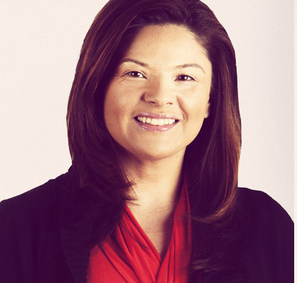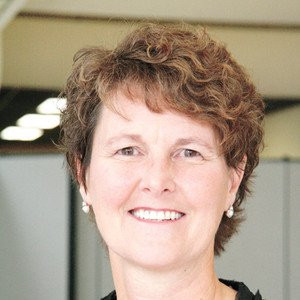RI Experts on the Biggest Challenges Facing Public Education
Wednesday, November 20, 2013
This Friday, education experts, along with leaders in the public and nonprofit sectors will convene at the Hassenfeld Institute for Public Leadership at Bryant University for a symposium on what is being billed as "the civil rights issue of the 21st century -- adequacy and equity and the State of Education in Rhode Island."
The event will feature as its keynote Michael Rebell, Columbia Law School Professor and national expert in equity in education, the role of the courts in institutional reform litigations and social reform. Rebell will be addressing "why constitutional changes are the next step in creating adequacy and equity" and raise the question as to whether the right to a quality education should be more formally protected by special legislation in the state constitution.
"I think using the word "constitution" is a provocative way to look at how we fund, implement, regulate education in Rhode Island," said Anna-Cano Morales, Chairwoman of the Central Falls Public Schools Board of Trustees and Director of the Latino Policy Institute at Roger Williams University.
GET THE LATEST BREAKING NEWS HERE -- SIGN UP FOR GOLOCAL FREE DAILY EBLASTPawtucket Schools Superintendent Deborah Cylke, who will be joining Cano-Morales on the panel on Friday, said that equitable funding was at the core of the issue. "The reality is, certain cities are distressed, or whose property values are not as high, I know each town has a different capacity to fund education. Your quality of education should not be dependent on your zip code."
GoLocal spoke with representatives from the Rhode Island education community taking part in Friday's symposium, including the Hassenfeld Institute's Gary Sasse, Tim Duffy with the Rhode Island Association of School Committees, and Eva-Marie Mancuso, RIDE Chair of the Board of Education - and asked what they saw as the most pressing challenges currently in public schools in the state.
Education Leaders on 3 Biggest Issues Facing the State BELOW
Early in November, the Rhode Island Department of Education reported that for "the first time in the history of the National Assessment of Educational Progress (NAEP), Rhode Island students scored above the national average in all four assessments in mathematics and reading, based on the percentage of students who performed at or above the proficient level."
RIDE however acknowledged, "Despite the positive results for the state as a whole, significant achievement gaps remain in place among Rhode Island students. Although Black students, Hispanic students, and economically disadvantaged students have improved significantly over the past four years, particularly in mathematics, their performance on almost all assessments remains approximately 20 percentage points below the state average, based on percent proficient or better. Over the past four years, the performance of students with disabilities and of English Learners has either declined or improved at a much lower rate than the state average."
Cano-Morales spoke to the recent gains being made in Central Falls, in light of challenging circumstances. "There's a difference between educating a student in Central Falls, and educating a student in the suburbs," said Cano-Morales.
Addressing the financial needs of the school district, Cano-Morales said, "I think that the funding formula is going to be a topic of discussion Friday, and seeing if when it's full enacted, it's equitable. For instance, our funding formula doesn't take into account schools, like Central Falls, that are in transformation."
Cano-Morales, Cylke, Sasse, Duffy, and Muncuso will take part in a panel discussion on Friday entitled, "Does Rhode Island Have the Resources Necessary to Meet Educational Goals?" The symposium will be addressing whether the current education system creates inequities in civil rights issues -- and whether the state constitution reflects the needs of the education system.
Constitutional Questions
Keynote speaker Rebell touched upon his talking points for Friday's presentation with GoLocal.
"I'm going to be speaking about the important role that courts should play, in conjunction with the legislature and the executive branch, in developing and implementing fair and adequate school funding systems," said Rebell, who serves as the Executive Director for the Campaign for Educational Equity,
"I'll also be reviewing constitutional language in a number of states and some experiences with the use of constitutional amendments to improve the language in state constitutions in order to ensure that all students receive a meaningful educational opportunity."
One of the nation's foremost authorities on the education adequacy movement in the United States, Rebell has pioneered the legal theory and strategy of educational adequacy. In the last 15 years, this legal strategy has "proven successful" in almost 75% of the cases challenging a state's failure to provide students with a sound, basic education. Mr. Rebell has also litigated numerous class-action lawsuits
In addition, former Rhode Island Supreme Court Justice Robert Flanders will be giving a history of education legal reforms in Rhode Island to open the symposium.
.
Related Slideshow: RI Experts on the Biggest Issues Facing Public Education
On Friday November 22, the Hassenfeld Institute for Public Leadership at Bryant University, the Latino Policy Institute of Roger Williams University, the Rhode Island Association of School Committees, the Providence Student Union, and RI-CAN: Rhode Island Campaign for Achievement Now will host Rhode Island leaders in the public and nonprofit sectors for a symposium on "the civil rights issue of the 21st century, adequacy and equity and the State of Education in Rhode Island."
Weighing in on the the "three biggest factors" facing education in the state today are symposium participatnts Gary Sasse, Founding Director of the Hassenfeld Institute for Leadership; Christine Lopes Metcalfe, Executive Director of RI-CAN; Anna Cano-Morales, Chairwoman of the Board of Trustees, Central Falls Public Schools and Director, Latino Policy Institute at Roger Williams University; Tim Duffy, Executive Director, RI Association of School Committees; and Deborah Cylke, Superintendent of Pawtucket Public Schools.
Related Articles
- Don Roach: My Education Crusade - An Interview with Deborah Gist
- Special Weekend Edition: The State of Education in RI
- NEW: Rhode Island Gets $670K For Workforce Training + Education
- Don Roach: My Education Crusade Begins Today
- TRENDER: Educational Game Designer Alan Tortolani
- RI District by District Breakdown on Education Costs
- Education Expert Michael Thompson Speaks At RI’s Lincoln School
- Tom Finneran: The Death of Common Sense in American Education
- RI Experts on the Biggest Challenges Facing Public Education
- Interactive Tool For RI Educational Performance and Spending
- NEW: ACLU Files Lawsuit Against Rhode Island Board of Education
- Julia Steiny: Public Admits Being ‘Clueless’ About Education
- Arthur Schaper: RI Education: End the Pillage, Restore The Village
- Leaders’ Top 3 Education Issues in Rhode Island
- NEW: Blue Cross Blue Shield RI Launches Healthcare Education Campaign
- Julia Steiny: UK Expert Marc Armitage Brings Playwork To US Educators
- Artistic Explosion Music Festival To Support Music Education
- Lisa Blais: Education Is Rhode Island’s Political Football
- NEW: RI ACLU Announces Third Lawsuit Against RI Education Board
- Coming Saturday: GoLocalProv Special Edition—EDUCATION
- RI State Report: Education Bills + Chafee Switches Parties
- NEW: RI ACLU Files New Motion Against Board of Education
- Does Rhode Island Have a Clear Strategy for Higher Education?
- Rhode Island’s Continuing Education Programs Gear Up For Fall
- NEW: Rhode Island ACLU Blasts Board of Education NECAP Vote















